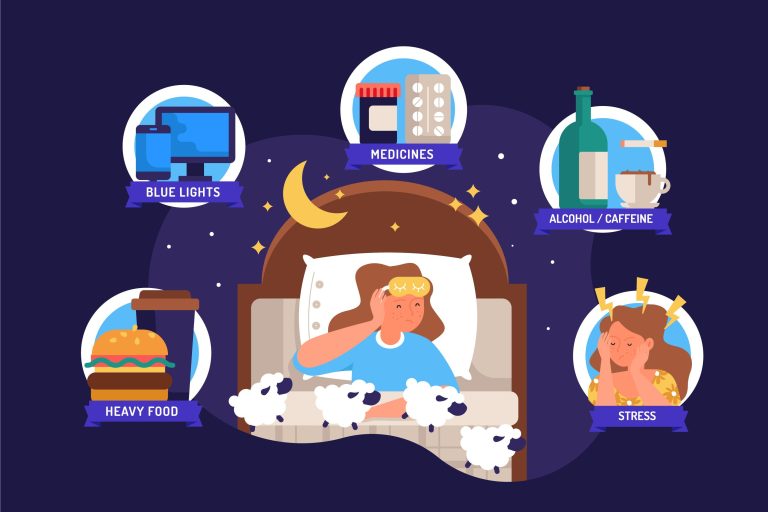Are restless nights stealing your energy and focus? Mastering the art of sleep can transform your nightly routine and help you wake up feeling genuinely refreshed. Many people struggle to fall asleep or stay asleep, finding themselves in a cycle of exhaustion that impacts everything from productivity to mood. But achieving a good night’s rest doesn’t have to be out of reach. In this guide, we’ll explore proven, practical solutions tailored to help you calm your mind, set the perfect sleep environment, and establish habits that support better sleep quality. With these steps, you’ll be well on your way to mastering sleep and enjoying the deep rest you deserve.
Understanding why you’re experiencing restless nights is the first step towards better sleep. Several factors can contribute to poor sleep quality, including:
- Stress and Anxiety: Racing thoughts and heightened stress levels make it challenging to relax and fall asleep.
- Poor Sleep Environment: Bright lights, uncomfortable bedding, or a noisy environment can prevent you from getting a good night’s sleep.
- Inconsistent Sleep Schedule: Going to bed and waking up at different times every day disrupts your body’s natural sleep-wake cycle.
- Diet and Caffeine Consumption: Eating heavy meals or consuming caffeine close to bedtime can make it difficult for your body to wind down.
- Lack of Physical Activity: Regular exercise promotes better sleep, and a sedentary lifestyle may contribute to sleep difficulties.
The Impact of Restless Nights on Health
Chronic sleeplessness not only affects your mood and productivity but also has long-term consequences for your health, such as:
- Weakened Immune System: Poor sleep reduces your body’s ability to fight off infections and illnesses.
- Increased Risk of Chronic Conditions: Insufficient sleep has been linked to an increased risk of conditions like diabetes, heart disease, and obesity.
- Mental Health Issues: Persistent sleep problems can contribute to anxiety, depression, and difficulty concentrating.

Practical Solutions to Improve Sleep Quality
If you’re experiencing restless nights, implementing the following solutions can help you achieve better sleep:
- Establish a Consistent Sleep Schedule: Going to bed and waking up at the same time each day helps regulate your internal clock.
- Create a Sleep-Friendly Environment: Make your bedroom dark, quiet, and cool. Consider using blackout curtains, earplugs, or a white noise machine.
- Limit Screen Time Before Bed: The blue light emitted by screens can interfere with the production of melatonin, the sleep hormone. Avoid screens at least an hour before bedtime.
- Incorporate Relaxation Techniques: Practices like deep breathing, meditation, or gentle yoga can help reduce stress and prepare your body for sleep.
- Avoid Heavy Meals and Caffeine Before Bed: Eat a light dinner and refrain from consuming caffeine or sugary foods in the evening.
Lifestyle Changes for Long-Term Sleep Health
In addition to the above strategies, making some long-term lifestyle changes can promote better sleep health:
- Engage in Regular Physical Activity: Exercise during the day to tire your body naturally and make it easier to fall asleep at night.
- Maintain a Balanced Diet: Consuming a variety of nutrient-rich foods supports overall health, including sleep quality.
Prioritize Stress Management: Adopt healthy coping mechanisms, such as talking to a friend, journaling, or seeking professional help to manage stress.
Conclusion: Master the Art of Sleep for a Healthier Life
Mastering the art of sleep takes time and patience, but the rewards are worth the effort. By understanding the root causes of restless nights and incorporating practical solutions, you can improve your sleep quality and enjoy a healthier, more balanced life. Remember to listen to your body and make gradual changes that suit your lifestyle. Sleep well!

